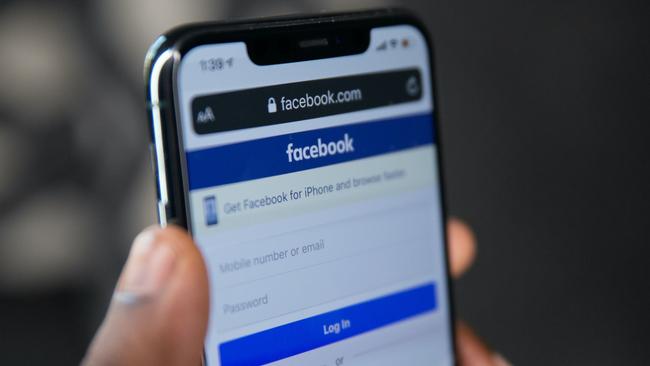It’s time to smash social media’s legal privileges
Facebook, Google and other ‘big tech’ must be made to operate in accordance with the same laws that every other company and Australian adult has to.

Terry McCrann
Don't miss out on the headlines from Terry McCrann. Followed categories will be added to My News.
The social media operators like Facebook and other tech giants like the outrageous monopoly Google must be brought into line by the simple expedient of requiring them to operate in accordance with the same laws that every other company and the 20m adult Australians have to.
Very few Australians would know that ‘Big Tech’ has been given a privileged position – both in Australia and in the US – which quite simply, quite literally, enables them, Facebook, Twitter, Instagram, Google, etc, to operate lawlessly.
Quite apart from the legal privilege, it has given them an outrageous competitive advantage in the commercial marketplace against especially traditional mainstream media, but in truth against everyone, including ordinary individuals.
I personally would argue, borrowing from the words and sentiments of 2nd Century BC Roman senator, Cato the Elder, that Big Tech “must be destroyed”. Not to put too fine a point on it: obliterated, ground into the dirt, with salt spread over their surface so nothing could subsequently flower over it.
But I would accept the abolition of the infamous “Section 230” in the US and either reversal of case law in Australia, or specific legislation, that removed the similar privileges down under.

Very simply – in the US and in Australia - Facebook & Co are defined as “common carriers”, and not as “publishers”, of the content they carry. So they can’t be sued for in particular defamation.
This has led to, for instance, the ludicrous High Court ruling that a publisher, like our News Corp or Nine or indeed individuals, can be sued for defamation on a comment attached to one of their Facebook posts, even though Facebook prohibited them from controlling or deleting the comment.
More broadly, Facebook and all the rest have quite blatantly and quite deliberately been acting like publishers: deciding what can and can’t be posted; deciding who can and can’t be ‘carried’ on their sites.
The very first time Facebook & Co decided a particular bit of content would not be carried, would not be published; the very first time they decided who could or could not post; they should have instantly lost their legal immunities.
The idea they were a ‘common carrier’ – like the NBN or a bus or train line – might have made some sense in the 1990s and early 2000s.
But that fantasy evaporated with the arrival of the smart-phone in 2007, and then the proliferation of apps and 24/7 real-time connectivity; and then increasingly as they all and particularly Facebook set out quite deliberately to be publishers; to monetise the publication of content.
If they want to be publishers, and they do – because ‘that’s where the money is’ - that’s fine. But require them to operate under the same rules.
Conventionally defined publishers are at a major competitive disadvantage; in time, in content, and in resources that have to be used before publication.
Facebook can just allow ‘anything’ to be instantly published (or not); and if ‘there’s a problem’ it’s their, the poster’s, problem not Facebook’s.
But Facebook still – outrageously, unfairly and unacceptably - pockets the dollars.
Time to call: the end.
Originally published as It’s time to smash social media’s legal privileges



